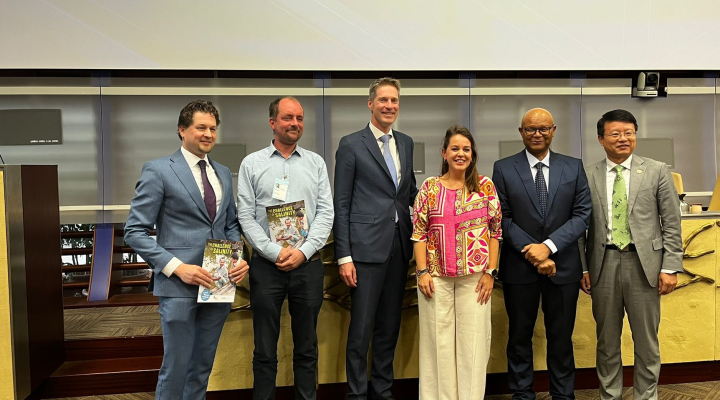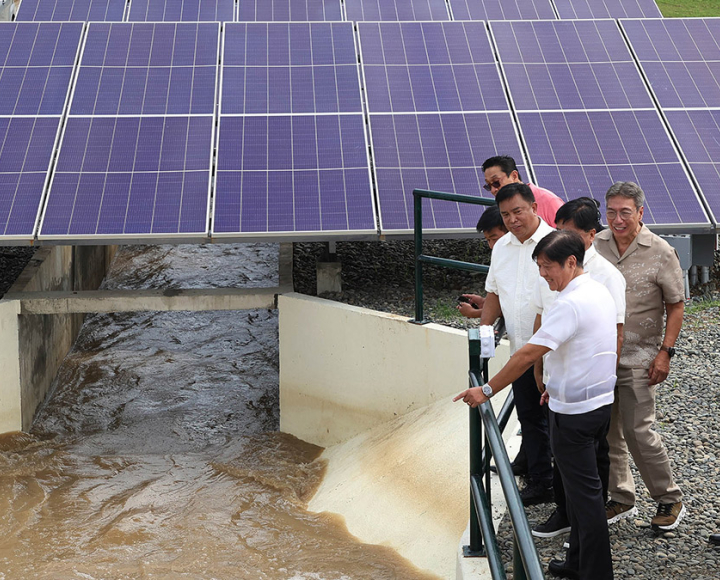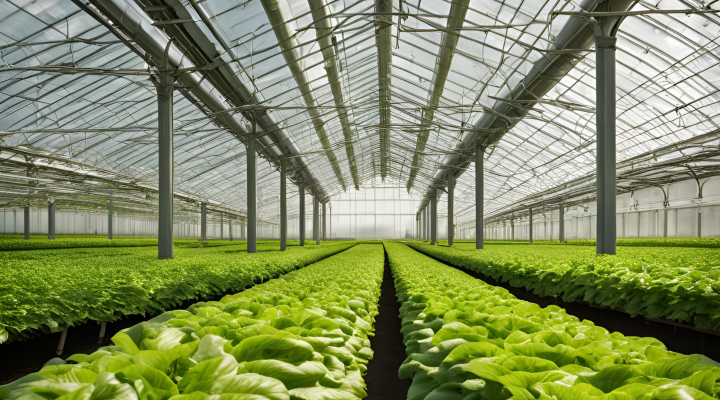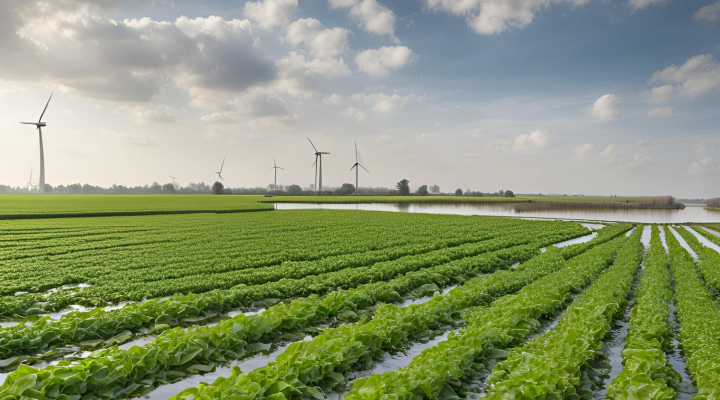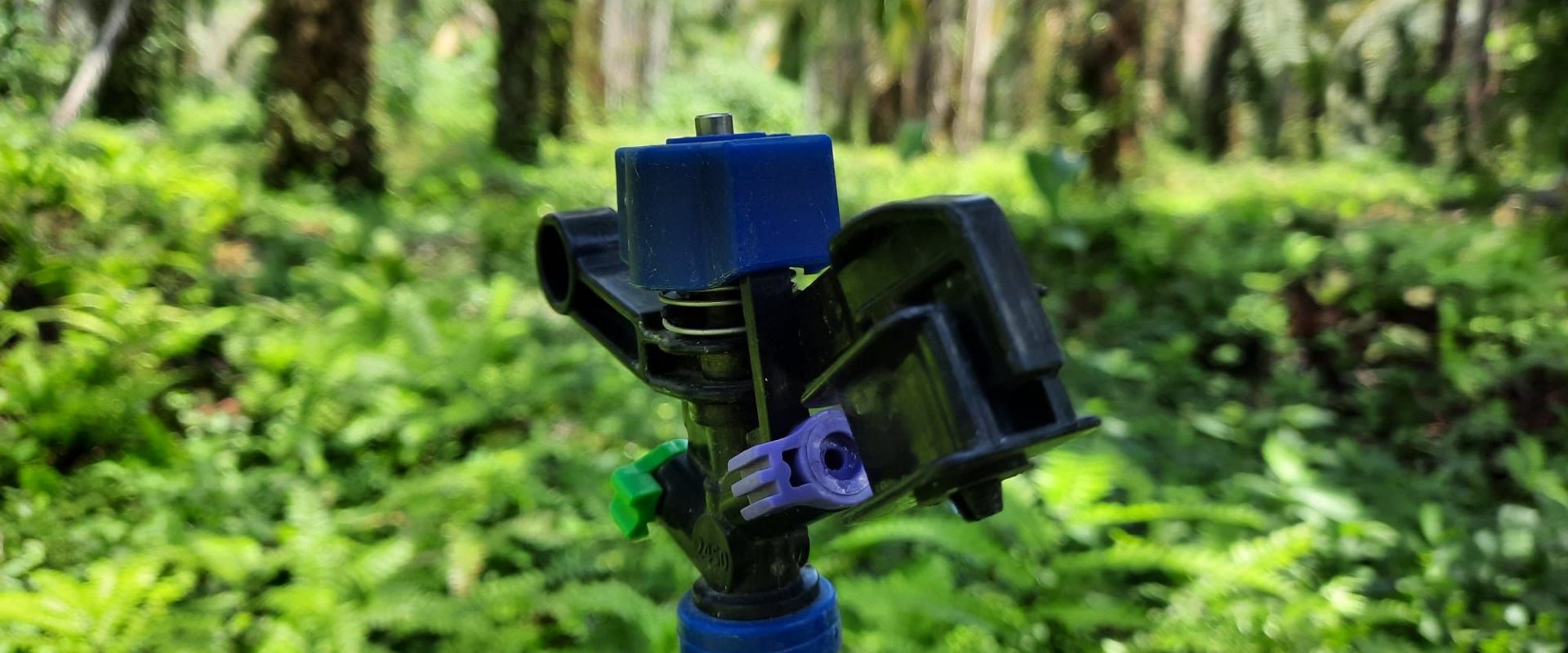
How Colombia is improving water efficiency in the palm oil industry
Palm oil is used in many of our products. Paint, cosmetics, food, and baby food all contain palm oil. And a lot of water is needed to produce palm oil. Colombia and the Netherlands have joined forces to improve the water efficiency of palm oil plantations and help make the sector more sustainable.
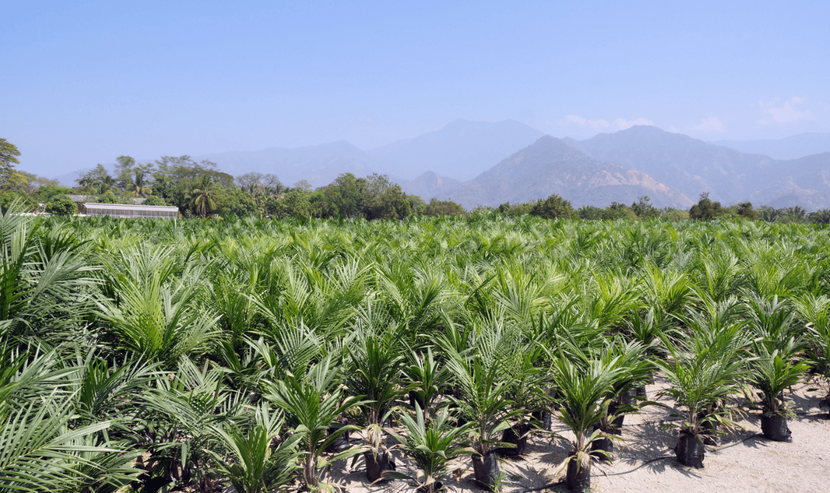

The palm oil industry in Colombia has grown significantly over the past decade. It is one of the pillars of Colombian agribusiness, accounting for seven per cent of the country's agricultural GDP. Mainly in response to concerns from European consumers, in recent years the Colombian Government has implemented strategies in the industry that have increased the volume of certified palm oil to around 30 per cent.
The increasing demand for palm oil creates new challenges, such as illegal plantations at the expense of the rainforest, which is important for water retention for flood prevent and is home to local communities. Given the pressure on natural resources, biodiversity and agriculture, it is striking that water – in terms of use, consumption, and management – is not yet included in certification schemes.
"That has to change," says Patricia de Vries-Van Loon, former Agricultural Counsellor at the Dutch Embassy in Bogota, who supports Dutch initiatives and agri-food organisations in Colombia, Ecuador and Peru. "More efficient water use in the palm oil sector is one of the priorities for the coming years. Water is the cornerstone of the Dutch Embassy’s bilateral agenda on circular agriculture in Colombia."
The policy of the Dutch Embassy is mainly aimed at fostering the transition from a continuous reduction in the cost price of products to a continuous reduction in the consumption of raw materials and external inputs, and on careful soil, water and nature management. This means that the connections between different sectors such as palm oil, fruit, and coffee need to be strengthened. Water is used as a connecting theme to give direction to a sustainable future in agriculture.
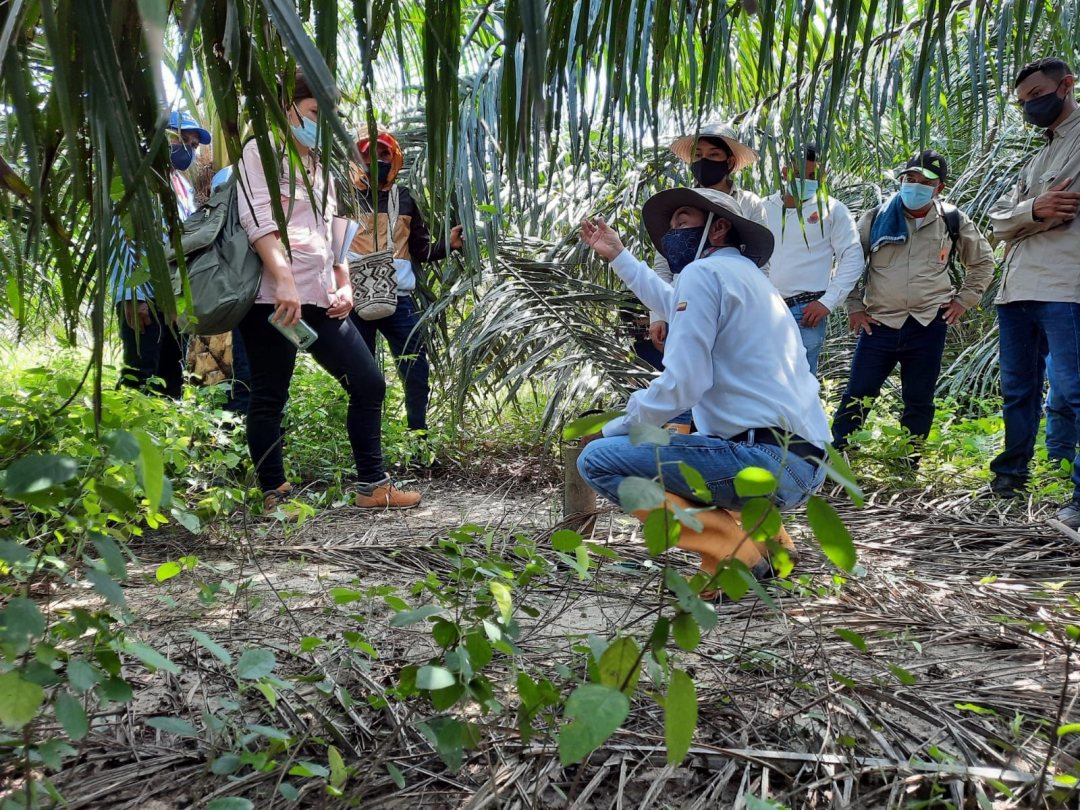
Collaboration is essential in the industry
According to De Vries-Van Loon, Colombia has many initiatives that show that things can be done differently. One of these is an RVO Partners for Water Programme project that promotes water efficiency in palm oil production. The project is carried out by a Dutch-Colombian consortium consisting of Delphy, Solidaridad, an environmental and human rights NGO, Future Water and Cenipalma, the research arm of Fedepalma, the palm oil branch organisation.
"We are working with Cenipalma, our local partner, to identify the factors that prevent palm oil producers from implementing more water efficient techniques," says Lotte Demmink, Project Manager at Delphy, a Dutch knowledge developer and implementer for global expertise in food and flowers. "With the right information, we can address the limiting factors at the technical, economic, and social level to save water, especially in areas that already suffer water stress."
Demmink explains that what makes this project unique is that they work closely with Colombian stakeholders in the application of more efficient irrigation and fertigation techniques for farmers. "Cenipalma and Solidaridad are experts in the field of palm oil production in Colombia. They strengthen the expertise of the Dutch parties and embed it locally."
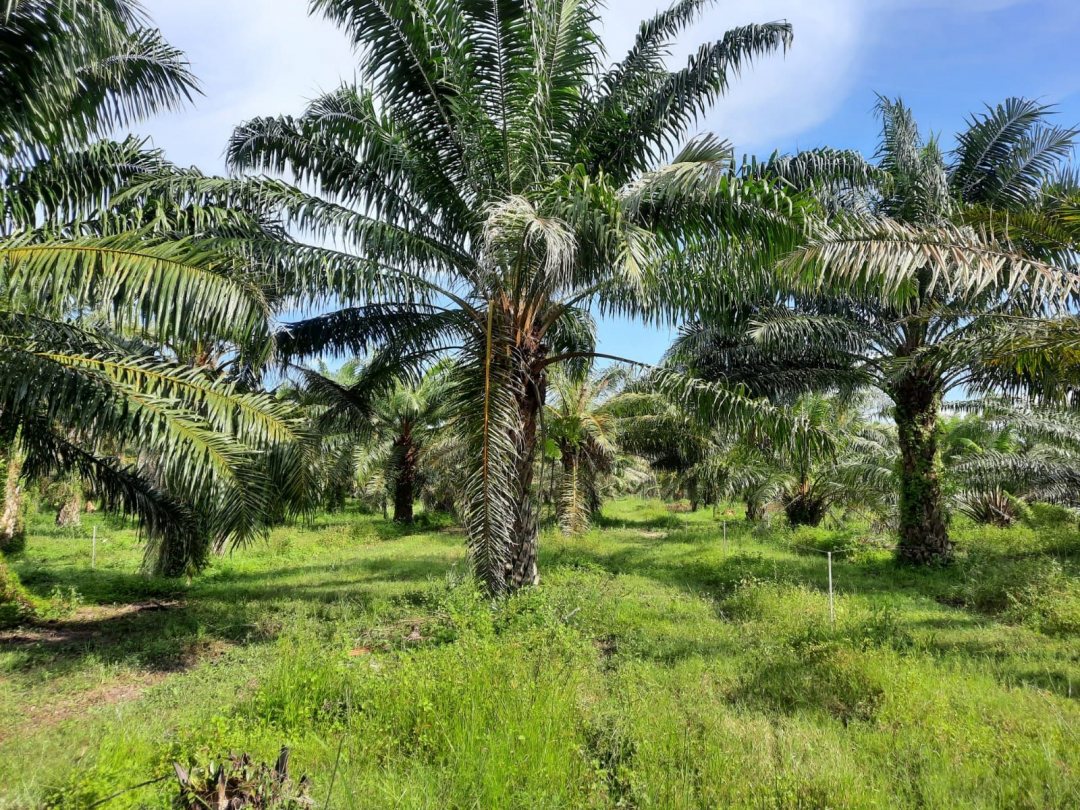

"We conducted interviews with 40 of the 107 farms in the Sevilla river catchment area. This revealed some of the main limiting factors, namely: the theft of sprinkler systems; the short repayment period for loans; and, the lack of knowledge about investment costs of and payback period for water-efficient systems. In addition, we researched irrigation techniques and found the most efficient one that would best help local farmers increase their crop yield and water productivity."
"To this end, we created demonstration fields where different irrigation systems have been tested. One is in Cenipalma’s research field and the other is with two progressive farmers in the region. The results of IrriWatch's irrigation tool that uses satellite data show that fields with traditional irrigation have yield losses due to drought stress, while fields with more water-efficient systems, such as sprinkler and drip irrigation, have no yield losses. Our calculations showed that two-thirds of the water could be saved if all palm oil producers in the basin used sprinkler or drip irrigation."
The study shows that investing in sprinkler or drip irrigation is a viable business case for local producers, and is even necessary given increasing water scarcity. To Demmink, the challenges are to communicate these results to local producers and other actors; continue the research on more water-efficient systems; and, support producers in developing their business case.
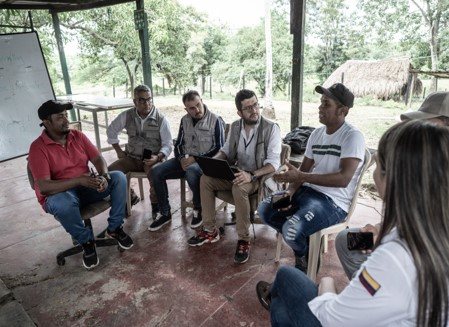

Involving small farmers is a challenge, but also an opportunity
Companies and organisations in Colombia are collaborating to build a sustainable palm oil industry. Tulia Delgado, researcher at Cenipalma, says that "Collaboration within the value chain is a key driver for a sustainable palm oil industry. Sharing best practices and developing innovative solutions are important if we are to make progress in this area. Companies should not adopt a silo mentality — collaboration is key."
"All partners share interesting information and knowledge. For example, I learn about IrriWatch's irrigation tool and how FutureWater quantifies water needs across the basin. Solidaridad provides advice on the socio-economic impact of palm oil production and we share information on the local techniques and cultivation of palm oil."
"Despite COVID-19, we have strengthened our partnership. We would like to continue the cooperation, because it will take about three years before we know whether the technique has the desired effect. The palms produce their first fruit three years after planting. If our method proves successful, we hope to extend it to other river basins to involve a larger number of smallholders in the implementation of sustainable practices in our ecosystem."
Osvaldo Pinedo is one of the farmers in the project. "It's definitely essential for us to receive technical help from a country like the Netherlands which, despite being so small, is one of the top 10 food exporting countries in the world. One of our most important needs is to implement an irrigation technology that prevents theft and losses."
"To expand our portfolio, it is also important to grow other export crops than our traditional ones such as bananas, palm oil, and coffee."
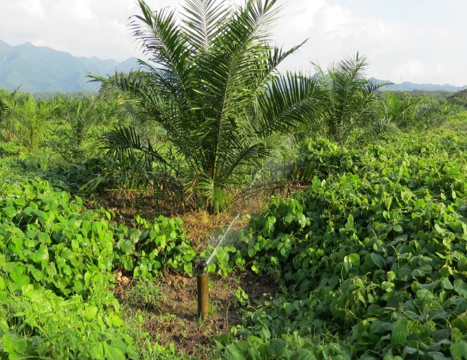

Leadership in transition
A sustainable palm oil industry requires leadership on several fronts such as: governments setting and enforcing rules; research centres like Cenipalma introducing new techniques in cooperation with international partners; and companies becoming frontrunners rather than waiting for consumer demand to drive changes. This type of leadership holds the key to sustainable agriculture.
In addition, NGOs such as Solidaridad play an important role because they can stimulate consumer demand through campaigning. They work on the ground with local farmers, so that the latter’s needs are actually included in the planning. But water managers and knowledge companies, such as Delphy and FutureWater, are also needed to develop new technology for positive change.
This project shows that intensive cooperation with local partners is important to make progress in reducing water use in the palm oil industry. It is a new step in an important journey to put water higher on the agenda.
NL - Colombia water cooperation - a series
This series of articles about Colombia is an initiative of the Partners for Water Programme to explore and report the main findings of the water cooperation between the Netherlands and Colombia from the perspective of the local counterparts. The articles in this series are written by Delta expert and publicist Joep Janssen.




